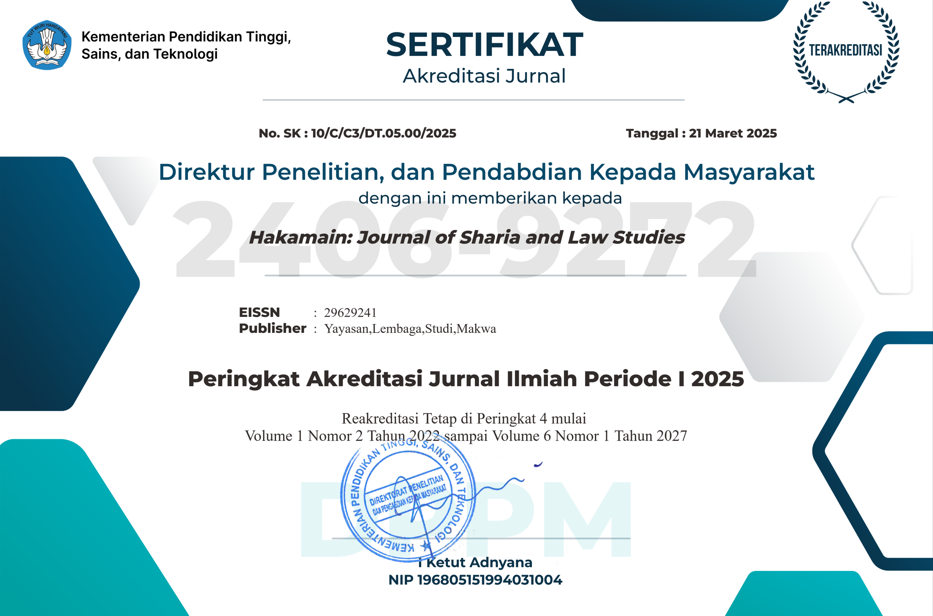Ta’zir Punishment for Adultery in Indonesian and Malaysian Law from a Maqashid Sharia Perspective
DOI:
https://doi.org/10.57255/hakamain.v4i1.1316Keywords:
Adultery, Indonesia, Malaysia, Maqashid Sharia, Ta’zir PunishmentAbstract
This research examines the application of ta’zir punishment for adultery in Indonesian and Malaysian law from the perspective of Maqasid Sharia. It explores how society perceives, interprets, and responds to these regulations, with particular attention to whether their implementation aligns with the higher objectives of Islamic law in safeguarding religion, life, lineage, intellect, and property. Using a qualitative field research approach, data were collected through in-depth interviews with legal practitioners, Islamic scholars, and community leaders, complemented by observations and documentation analysis in both Indonesia and Malaysia. The findings reveal that in Malaysia, particularly in states with Syariah Criminal Enactments, adultery provisions are viewed as a religious duty to preserve morality and lineage, although enforcement remains constrained by federal constitutional limits. In Indonesia, the inclusion of adultery provisions in the new Criminal Code has triggered intense debates between groups advocating moral protection and those emphasizing human rights and pluralism. From a Maqasid Sharia perspective, both contexts reflect sincere efforts to safeguard lineage and public morality; however, challenges persist regarding justice, proportionality, and the balance between individual rights and collective interests. This study concludes that the discourse on adultery punishment represents deeper negotiations between Islamic values, constitutional frameworks, and contemporary social realities. Its academic contribution lies in demonstrating how Maqasid Sharia can be operationalized as an analytical framework for assessing ta’zir punishments, thereby enriching Islamic legal scholarship in Southeast Asia.
Downloads
Published
How to Cite
Issue
Section
Citation Check
License
Copyright (c) 2025 Ferik Demiral, Dahyul Daipon, Mutia Urdatul Usqho

This work is licensed under a Creative Commons Attribution-ShareAlike 4.0 International License.






